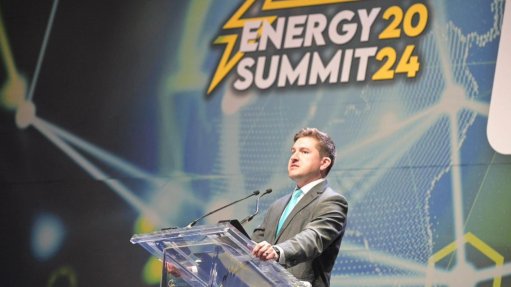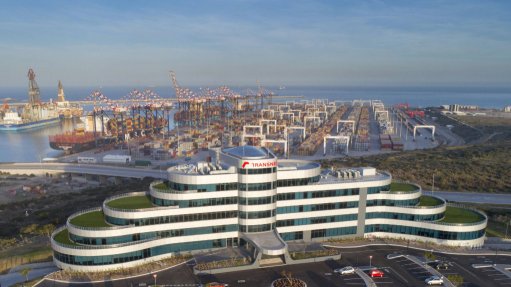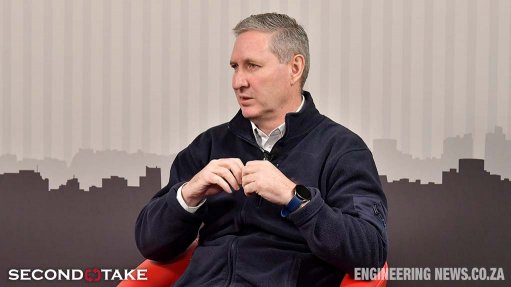Broken printers cost SA healthcare sector 1,820 working hours a year
This article has been supplied as a media statement and is not written by Creamer Media. It may be available only for a limited time on this website.
Nearly all patient-facing employees lose time to poor tech – and want action
Healthcare workers across South Africa lose an estimated 76 working days every year thanks to slow or non-functioning printers[i], according to new research from Epson undertaken throughout Europe, the Middle East and Africa.
South Africa is already grappling with significant healthcare staffing challenges, worsening an already strained system. The country faces a shortage of skilled healthcare professionals across various disciplines, including doctors, nurses, and specialists. The survey of 3,400 patient-facing practitioners such as doctors and nurses, uncovers the link between poor technology and reduced productivity.
Nearly all (92%) of healthcare workers say they lose time to slow or non-functioning printers each week. A third (31%) of respondents lose up to 30 minutes, and 19% up to an hour.
A staggering 97% say this has a negative impact, causing delays or difficulties with sharing information (40%), updating patient records (46%) and making appointments (38%). Nearly a third (28%) said it leads to more complaints from patients.
As a result, 84% of healthcare workers say more should be done to ensure time is not wasted by poor technology. A further 75% agreed that despite time being wasted by non-functioning or slow printers at work, little action is being taken.
It’s no surprise that 89% say they think their IT department or IT managers should provide printers that print quickly and require less maintenance to reduce difficulties created by printer downtime.
In doing so, environmental concerns also come into play, with 85% of respondents agreeing that the environmental impact of non-sustainable printers is a great concern to them personally.
Yudheer Harbhajun, Epson Business Print Sales Manager said, "It's a glaring reality. While some may think printers are just sidelines in the work of healthcare workers facing patients, the truth is far from it. Outdated technology is directly impacting patients, and healthcare professionals are calling for urgent intervention."
“For many healthcare institutions, a simple switch from laser printers to Heat-Free inkjets could help. Heat-Free inkjets tend to have fewer moving and consumable parts to replace over the lifetime of the printer compared to lasers, reducing intervention[ii]and improving productivity and user satisfaction.”
Unlike laser printers, which use heat-intensive processes like fusing toner to a page, Epson’s Heat-Free Technology omit the need for fuser units and does not require heat in the ink ejection process[iii], reducing the energy requirement. With zero warm-up time on the Epson Heat-Free technology, users can typically save up to 30 seconds per print job that needs to be released at the device. Epson offers a comprehensive Optimisation Report which highlight the savings on electricity, carbon dioxide emissions and productivity, by simply making the switch from the traditional laser print fleet to an Epson Heat-Free print fleet.
These are hidden costs which are not reflective on your print invoices, however the savings on a larger fleet could run into the hundreds of thousands of rands for the contract period. The Optimisation Report is of significant value to medium and large enterprises as it contributes to any organisation that reports on their Sustainability Blueprint/Report. The Epson Heat-Free technology is considered as the cleaner printing technology with up to 92% lower CO2 emissions and eliminates toner dust particles discharged into the air. It goes without saying, that in healthcare a sterile environment is of utmost importance.
Healthcare leaders – especially IT managers – need to take heed of patient-facing healthcare workers and consider a switch. In doing so, they’ll support patient outcomes.
Comments
Announcements
What's On
Subscribe to improve your user experience...
Option 1 (equivalent of R125 a month):
Receive a weekly copy of Creamer Media's Engineering News & Mining Weekly magazine
(print copy for those in South Africa and e-magazine for those outside of South Africa)
Receive daily email newsletters
Access to full search results
Access archive of magazine back copies
Access to Projects in Progress
Access to ONE Research Report of your choice in PDF format
Option 2 (equivalent of R375 a month):
All benefits from Option 1
PLUS
Access to Creamer Media's Research Channel Africa for ALL Research Reports, in PDF format, on various industrial and mining sectors
including Electricity; Water; Energy Transition; Hydrogen; Roads, Rail and Ports; Coal; Gold; Platinum; Battery Metals; etc.
Already a subscriber?
Forgotten your password?
Receive weekly copy of Creamer Media's Engineering News & Mining Weekly magazine (print copy for those in South Africa and e-magazine for those outside of South Africa)
➕
Recieve daily email newsletters
➕
Access to full search results
➕
Access archive of magazine back copies
➕
Access to Projects in Progress
➕
Access to ONE Research Report of your choice in PDF format
RESEARCH CHANNEL AFRICA
R4500 (equivalent of R375 a month)
SUBSCRIBEAll benefits from Option 1
➕
Access to Creamer Media's Research Channel Africa for ALL Research Reports on various industrial and mining sectors, in PDF format, including on:
Electricity
➕
Water
➕
Energy Transition
➕
Hydrogen
➕
Roads, Rail and Ports
➕
Coal
➕
Gold
➕
Platinum
➕
Battery Metals
➕
etc.
Receive all benefits from Option 1 or Option 2 delivered to numerous people at your company
➕
Multiple User names and Passwords for simultaneous log-ins
➕
Intranet integration access to all in your organisation


















